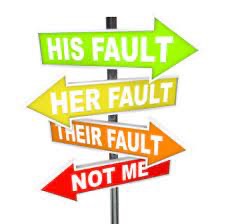
"Conflict is the consequence of unmet needs" is a quote from an email from the darling daughter. In turn she was quoting a seminar on, of all unlikely things, corporate management. Struggling a little to recognise the message, I googled the quoted phrase and found quite enough sites using the same phrase. That doesn't make it understood, of course, and it may just be a label rather than an expression of understanding. ⇐
From a site on conflict management, it appears that the issue at hand, the problem that is presented for resolution, is rarely the real problem and that one should look (instead) at needs, values, status and identity. Conflict occurs when these are threatened, though the threat may come from competition, such as for scarce resources or from competition over what is valued. Needs can be listed, but they amount to what either or any party says they are; there may be some conflict between needs and so ranking might be necessary. Values are cultural where needs are not; culture includes religion and might be limited to a small circle such as family up to a far wider one like a nation. These are often hard to pin down and are assumed to be largely unconscious. That makes these unconscious emotions and almost automatically hard to identify cause or reasoning for - they evade ratiocination. Thus it can be difficult in conflict here to even agree what might be declared right or wrong, true or untrue. Status is an attribute of position in society; it can be a perception, inherited or achieved (and could be shades of these in combination); this then relates to power and power over, which produces conflict when people disagree with this power or privilege. Identity is a little elusive perhaps, but refers to the sense of who-you-are that is threatened and the reaction is often both aggressive and defensive. It is identity that is at the root of most racial and ethnic conflicts, but also those of gender and family, where one's image of position in a section of society is put at risk. A typical situation occurs with every teenager who feels ready to take responsibility for themselves but finds that the parents feel the child is still somehow a chattel.
Reducing all of that detail to 'unmet needs' is, I felt at the time, a stretch. That is only because I haven't worked through the content so that 'unmet needs' can become the suitable label for the whole, which is my loss, fault, mistake, etc.. If I take the definition of such needs to be whatever someone declares to be such at the time, then a long step towards resolution is taken as soon as that need can be identified clearly. Tracking down the cause of that perception may solve the whole of the problem. However, it is emotion that gets in the way of thinking and in a sense people can be so busy being emotional (think rage) that they are, for a time, quite unable to engage in thought. Which is a pity, because being able to ask oneself why this emotion is being experienced may well be the shortest route to not only a resolution but a useful discovery - about oneself, as like as not. Particularly that you place <this thing> as a need, while the other party involved does not.
Which goes a long way to explaining why what is generally described as 'outdoor activities' are so good for mental health. A little physical stress in an unfamiliar environment allows one to put into perspective what is important—being warm, dry, fed, clean, healthy, for example—and in consequence puts other 'important' needs to what might be seen as a 'better' place in a ranked list of these perceived needs. I include in that those things that are taken as assumptions but not thought about (which I call presumptions, things often worthy of discovery) such as clean air and water, national support systems such as health care, basic safety support, rule of law.
Links: 2 academic, 3 chatty, 4 more academic.
________________
https://medium.com/the-liberators/what-science-says-about-conflict-styles-124246751203 a different viewpoint
_